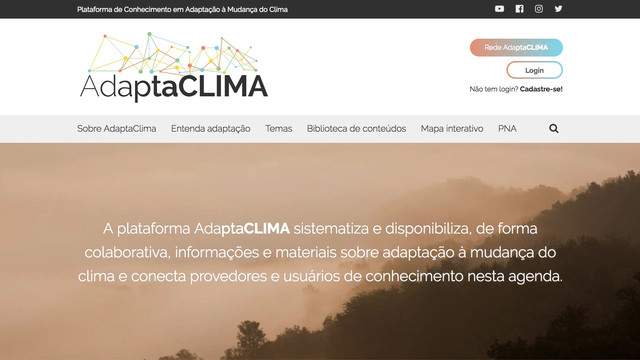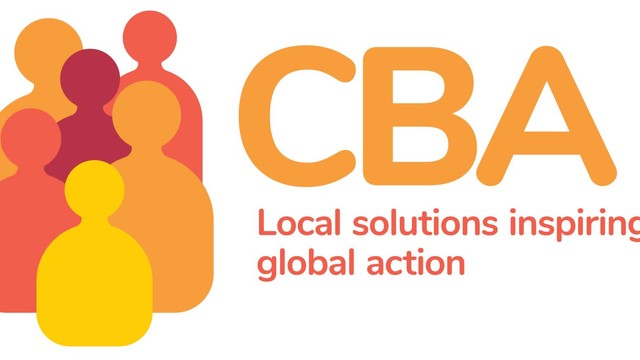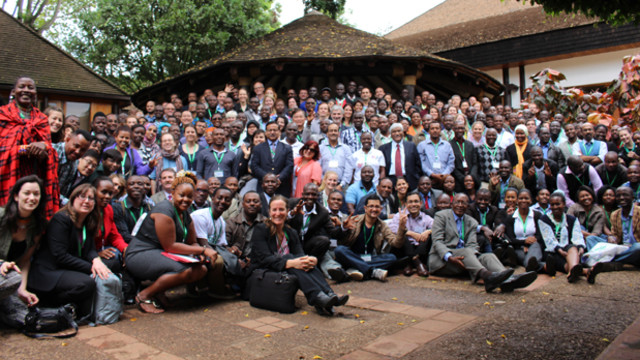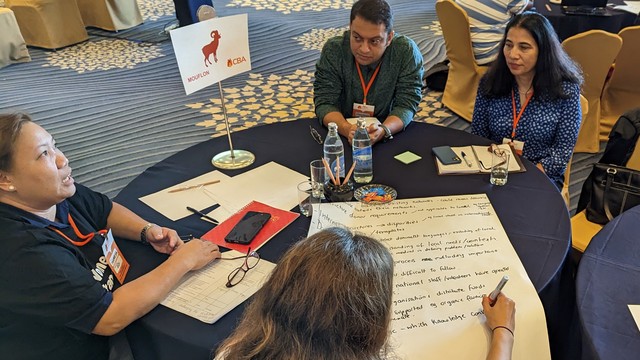Empowering communities to adapt to climate change
Many communities that are vulnerable to climate change impacts have been dealing with climate variability for decades and have a wealth of knowledge about how to adapt. Community-based adaptation to climate change focuses on empowering communities to use their own knowledge and decision-making processes to take action.
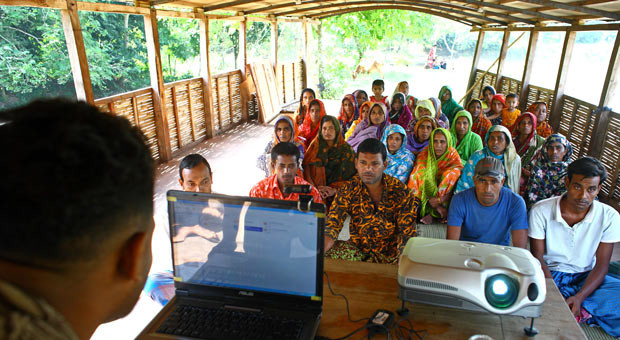
Group meeting on climate change on boat run by Shidhulai. Natore, Bangladesh. Photo: G.M.B. Akash/PANOS
IIED has often led the way on learning about and sharing effective community-based adaptation (CBA) by:
- Partnering with key institutions and research programmes that examine how local communities are adapting to climate change, and
- Creating spaces for practitioners to share lessons learned by running conferences on CBA.
Action Research on Community Adaptation
IIED supports Action Research on Community Adaptation in Bangladesh (ARCAB), a collaborative platform for learning-by-doing action-research on CBA.
Based in Bangladesh, a country that is particularly hard hit by climate change, ARCAB's research programme aims to build knowledge on how to do successful CBA. The research will span decades and cover a range of themes from economics, to children's roles in responding to emergencies and will build an evidence base for CBA that can inform policy, practice and future research elsewhere.
CBA conferences
IIED provides learning spaces to explore the challenges and opportunities of CBA and share experience gained from CBA activities among practitioners, policymakers, researchers, funders and the communities at risk. IIED and partners have organised a series of international conferences on CBA.
The initial conferences were held in Bangladesh, more recent conferences have been held in other countries vulnerable to climate change. The 9th conference was held in Nairobi, Kenya.
Other learning and sharing activities include the Community-Based Adaptation Exchange web network, and CBA sessions at the annual Development & Climate Days event at the Conference of the Parties (COP) of the United Nations Framework Convention on Climate Change.
Just because CBA is 'community-based' doesn't mean that it should operate solely at the community level. IIED's work with the government of Nepal to bring Local Adaptation Plans of Action into national adaptation planning frameworks shows how this work can have an impact at a wider level.
Related reading
Community-based adaptation to climate change: an overview, in Participatory Learning and Action 60: 11-33, Hannah Reid, Mozaharul Alam, Rachel Berger, Terry Cannon, Angela Milligan (2009), IIED.
Publications from the CBA conference series:
- Following the 5th international CBA conference in Bangladesh on scaling up CBA, the following book was published: Community-Based Adaptation to Climate Change
- Following the 7th conference, a special of issue of the journal Climate and Development on Mainstreaming CBA into national and local planning was published. All articles can be freely downloaded from the publishers' websites.
IIED has also conducted research on the links between community-based adaptation and ecosystem-based adaptation: two emerging disciplines that may have evolved separately but are now coming together in theory and practice.
Research in Bangladesh looks at how biodiversity and ecosystem services to help local people adapt to the adverse effects of climate change, while there are Lessons for CBA from the much older community-based natural resource management.
Research in Ethiopia details how community-based/participatory initiatives undertaken by Save the Children with pastoral communities in the lowlands of Borana and Guji zones in Ethiopia contribute to climate change adaptation.
